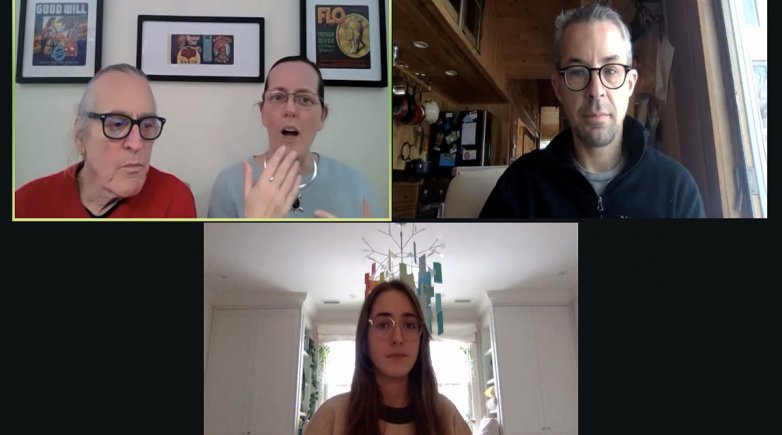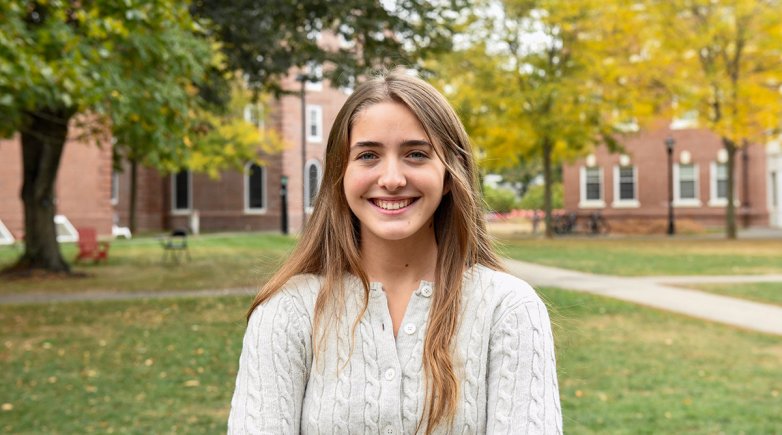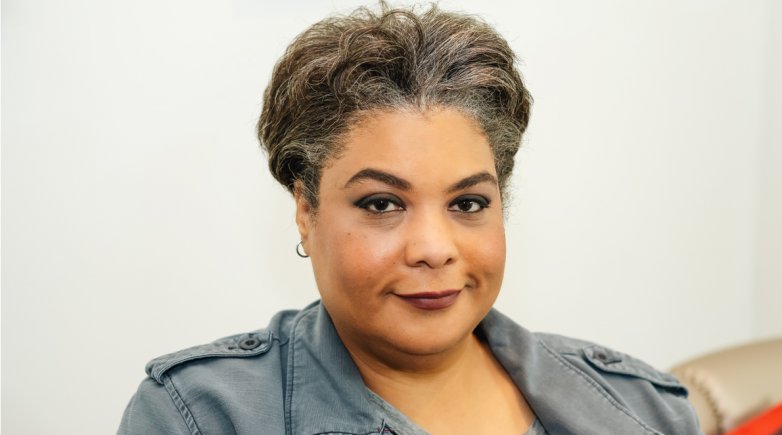Tribal leaders address Exeter community
Denise and Paul Pouliot of Pennacook-Abenaki people make Academy history as the first local indigenous tribal leaders to speak at assembly.
Paul and Denise Pouliot (upper left) address virtual assembly as Assembly Program Coordinator Alex Myers '96 and moderator Emmanuelle Brindamour '21 look on.
Denise and Paul Pouliot of the Cowasuck Band of the Pennacook-Abenaki people addressed the Exeter community last week and in doing so made Academy history.
The first local indigenous tribal leaders to speak at assembly, the Pouliots shared the story of the Abenaki, discussed the nebulous relationship between their tribe and the United States government and described the impact of climate change on their ancestral homeland. The Pouliot’s address to assembly is part of the Academy’s ongoing commitment to becoming an anti-racist school and fostering discussions around diversity, equity and inclusion.
Descendants of the Wabanaki or “people of the dawn land,” the Abenaki’s precolonial footprint stretched from what is now Central New England to Southern Quebec and includes the land that the town of Exeter and the Academy now occupy.
Paul Pouliot explained that in addition to disease and warfare, the indigenous population became fractured after European settlers came to North America and began subcategorizing the native population based on geography. “It was a flawed ethnology and cultural anthropology. They looked at every place name and they created at least 60 names for us,” he said.
This division of the indigenous population resulted in the U.S. government acknowledging some but not all tribes. To this day, the Pouliots explained, the Abenaki are not federally recognized, which gives the tribe some independence, but leaves the them in limbo when it comes to legal matters such as marriage and interment.
“Right now, we're a pre-constitutional tribe, which means that we fall back on the laws that were here prior to the Constitution,” Denise Pouliot said. “We don't want to be wards of the state, because that's what you do when you become acknowledged by the federal government,” Paul Pouliot continued.
Much of the Pouliots day-to-day work within their community focuses on issues like the impact of climate change and its correlation to food scarcity.
“We're working heavily in food sustainability here in New Hampshire because we see the shortfall that's coming. New Hampshire only produces 10% of the food that it utilizes. That's a fundamental problem. You cannot sustain the population at that rate,” Denise Pouliot said.
The assembly was moderated by Emmanuelle Brindamour, founder of the Academy’s Indigenous Reconciliation Club. Recently, Brindamour was instrumental in persuading the town of Exeter to recognize Indigenous People’s Day rather than Columbus Day.



